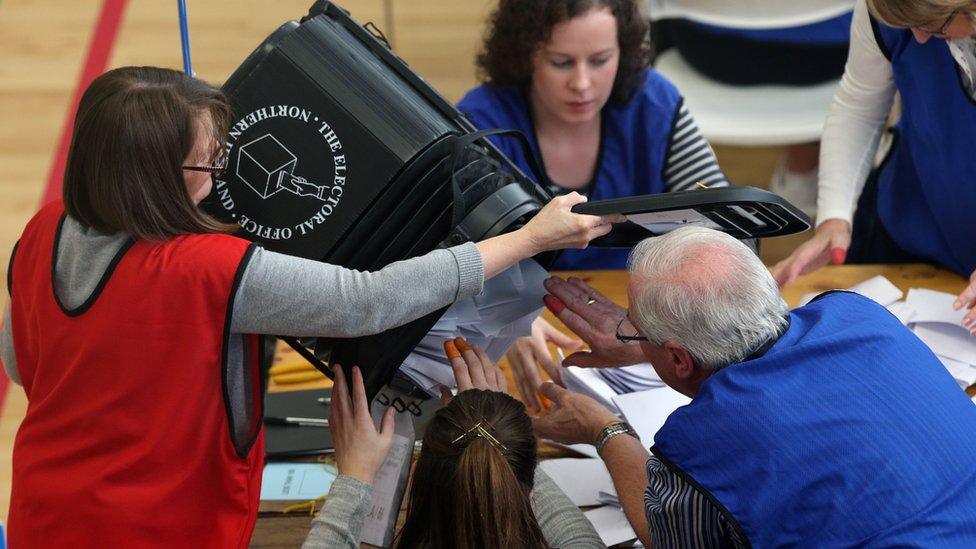Stormont party leaders in roundtable talks
- Published
- comments
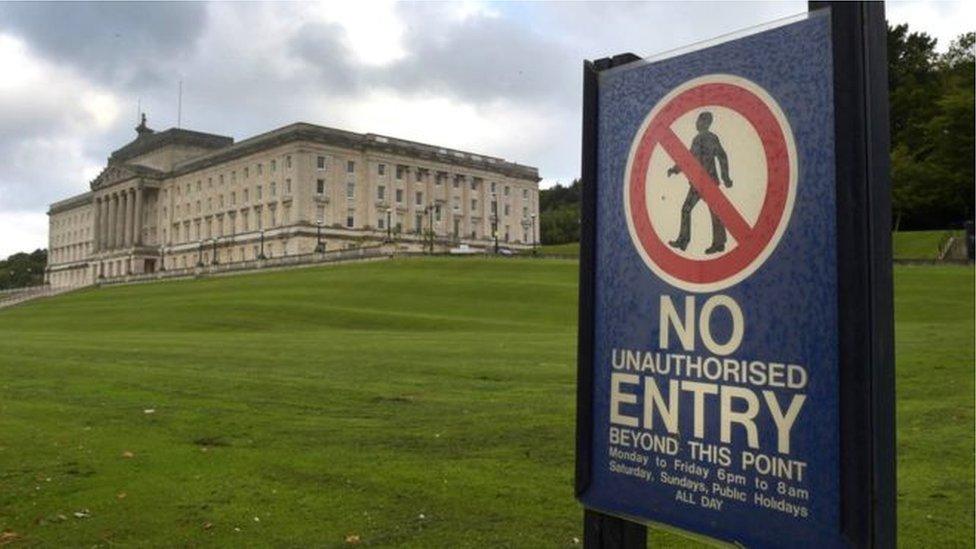
The new talks have been described as "an intensive process to drive progress"
Party leaders have met at Stormont Castle for roundtable talks in an effort to strike a deal for the restoration of devolved government.
The parties missed last week's deadline for forming a power-sharing executive.
Secretary of State James Brokenshire has given the parties until 18 April, when Westminster returns after the Easter recess, to reach a deal.
Snap elections on 2 March resulted in Sinn Féin coming within one seat of the Democratic Unionist Party.
Sinn Féin's John O'Dowd sounded a downbeat note following today's first round of talks.
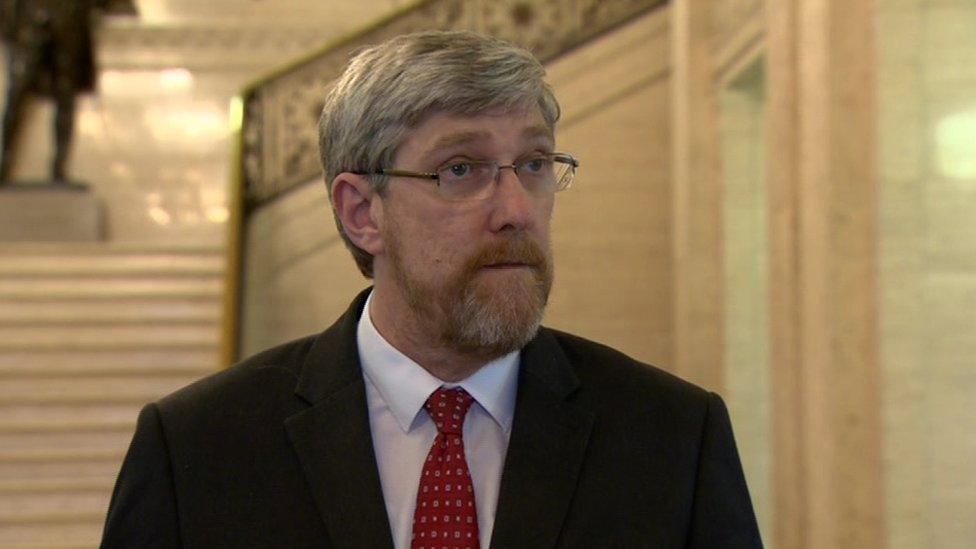
Sinn Féin's John O'Dowd insisted a deal could be done
"There hasn't been sufficient movement," he said, adding that the party was seeking the implementation of existing agreements.

Analysis: Mark Devenport, BBC News NI political editor
The head of the Northern Ireland Civil Service, Sir Malcolm McKibbin, is chairing some of the sessions in the latest round of inter-party negotiations.
He is likely to chair meetings dealing with issues like a future programme for government, the budget and the need for greater transparency in government.
But it is understood he will not chair discussions on how to deal with the legacy of the Troubles.
Sinn Féin and the SDLP have previously objected to the Secretary of State, James Brokenshire, chairing discussions on legacy matters.
It is understood Sir Malcolm was the individual Sinn Féin had suggested as an independent talks chairman .

"You can't compromise on a compromise," said the Upper Bann MLA.
But he also insisted a deal could be do done in the next two days given the right attitude.
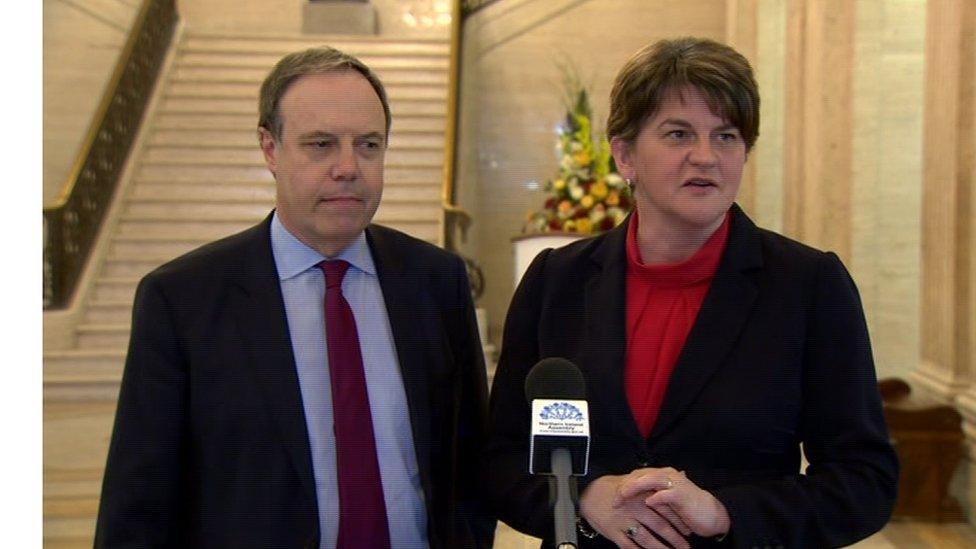
Arlene Foster said there was "constructive engagement"
DUP leader Arlene Foster said there had been "constructive engagement" during the party leaders' meeting.
She rejected Sinn Féin's argument that the talks were simply concerned with implementing previous agreements.
"There have been new elements introduced to these negotiations," said Mrs Foster.
Asked if an agreement was possible before the end of the month, the former first minister replied: "As far as we are concerned, yes, absolutely".
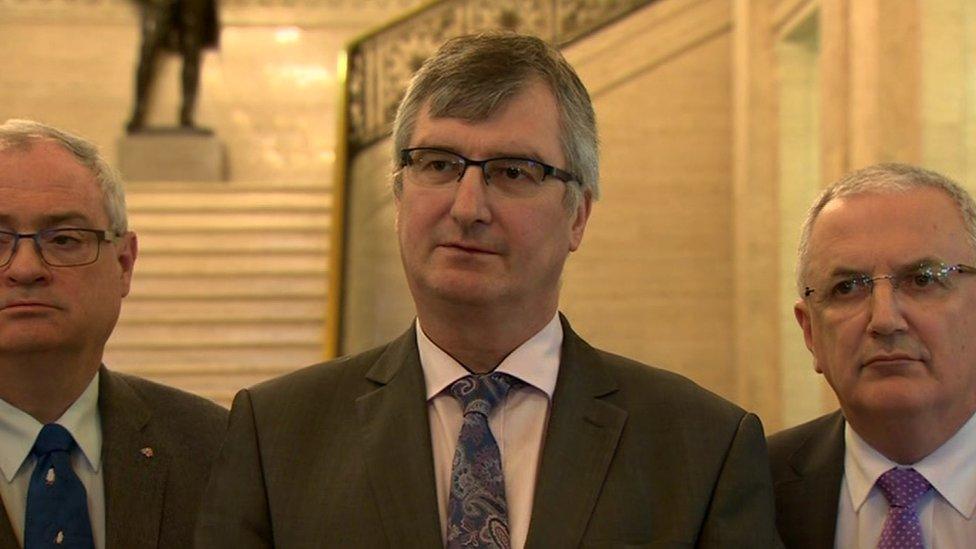
Tom Elliott called on Sinn Féin to "show respect"
Ulster Unionist negotiator Tom Elliott said the chances of success were "possible, indeed they could be probable".
However, the former party leader admitted progress was limited.
Mr Elliott said Sinn Féin "must show respect as well to other parties".
'Gaps can be closed'
SDLP leader Colum Eastwood said the roundtable meeting was "a step in the right direction".
"There's a lot of work to be done in the days ahead, but gaps can be closed and a comprehensive resolution can be agreed," he added.
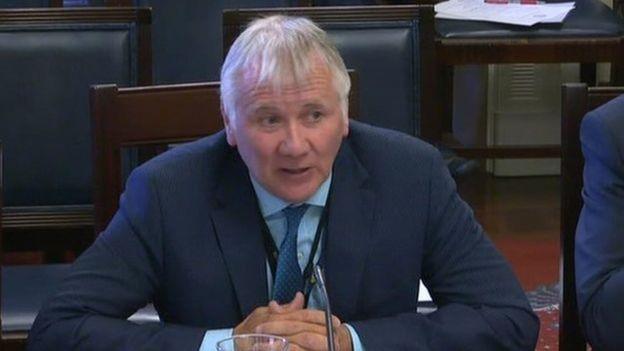
Sir Malcolm McKibbin is chairing some of the talks
The two governments have described it as "an intensive process to drive progress".
Mr Brokenshire has said he still believes there is a short window of opportunity to find agreement, and no appetite for another snap election.
Mr Brokenshire told MPs in Westminster last week that he did not want to see a return of direct rule from London, but that he had to keep all options open.
He added that he would legislate on Northern Ireland's future when Westminster returns after Easter.
Northern Ireland's two biggest parties, the DUP and Sinn Féin, had blamed each other for the failure of initial talks.
Mrs Foster said Sinn Féin was "not in agreement-finding mode", while Sinn Féin's Michelle O'Neill said the DUP did not have "the right attitude".
The Alliance Party's Stephen Farry warned that an agreement was crucial in order for the devolved government to deal with the impact of Brexit.
"We have to have an executive in place and an executive with a proper Brexit plan if we're going to make any head way," he said. "There's a massive amount of work to be done."
Botched energy scheme
A number of politicians strongly criticised the handling of previous negotiations, which ended without success last weekend.
Issues including the Irish language and the legacy of the Troubles were seen as the main sticking points.
The political deadlock came after a snap election on 2 March brought an end to Stormont's unionist majority and the DUP's lead over Sinn Féin was cut from 10 seats to one.
Under Northern Ireland's power-sharing agreement, the executive must be jointly run by unionists and nationalists, with the largest party putting forward a candidate for first minister.
Sinn Féin's Martin McGuinness quit as deputy first minister in January in protest against the DUP's handling of a botched green energy scheme.
The party said it would not share power with Mrs Foster as first minister until the conclusion of a public inquiry into the Renewable Heat Incentive (RHI) scheme.
Mr McGuinness, who had been suffering from a rare heart condition, died last month at the age of 66.
- Published31 March 2017

- Published27 March 2017
- Published27 March 2017
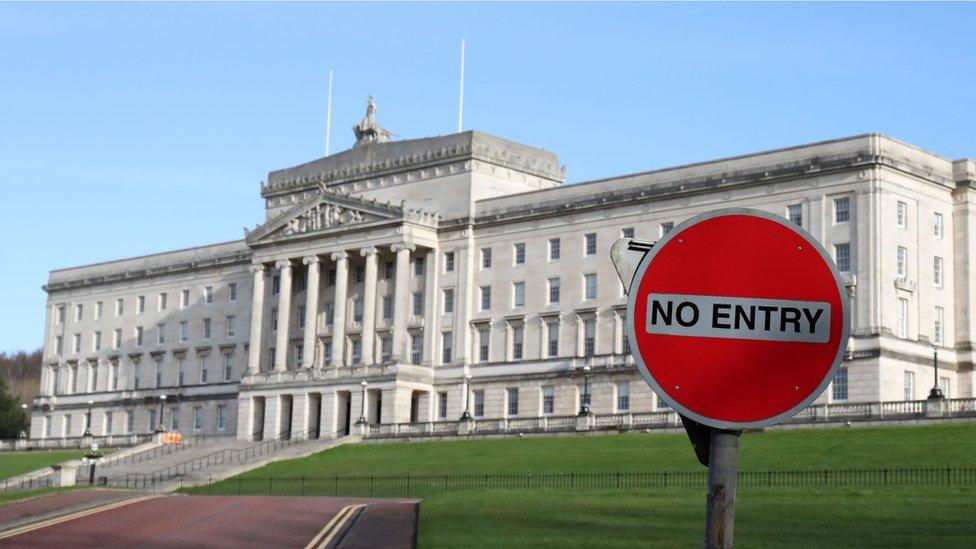
- Published27 March 2017
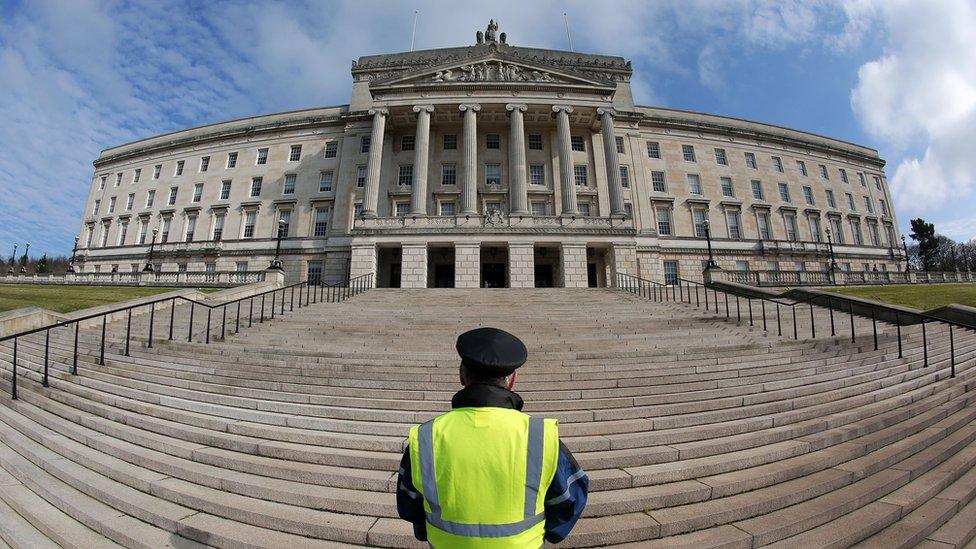
- Published4 March 2017
